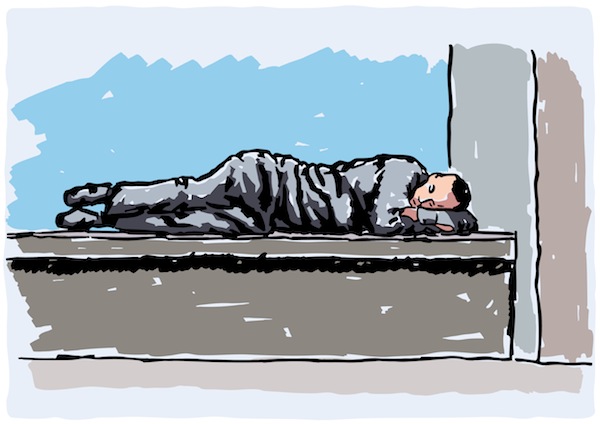A homeless person’s inability to find a lawyer may be a compelling reason to bring an appeal after the normal 21-day time limit, the Court of Appeal has ruled.
Overturning the High Court’s decision to the contrary, Sir Stephen Richards emphasised several important factors which affect a homeless person’s ability to act as a litigant in person. These included ‘common difficulties or shared characteristics of those experiencing homelessness’ such as poverty and mental illness, difficulty understanding councils’ decisions, limited internet access, and imminent loss of temporary accommodation after a negative decision has been made.
The Court of Appeal also noted that it has become increasingly difficult for homeless persons to find legal representation, which was directly attributed to the shrinking of the housing advice sector following LASPO.
The case was brought by a man named Mr Al Ahmed who had applied for homelessness assistance to the London Borough of Tower Hamlets. After receiving a negative decision on his application, he sought advice and representation from numerous organisations and solicitors firms. He was unable to find a solicitor to represent him until 33 days after the 21-day deadline to issue his appeal to the County Court, and his appeal was then issued two days later.
The High Court reversed the initial decision to allow the late appeal, on the basis that issuing such an appeal was something that in general homeless applicants were capable of doing. The steps involved in doing so include identifying specific points of law relating to generally long and complex decision letters, and completing a 10-page court form. If the case is not covered by legal aid, a court fee of £140 must be paid or a separate four page form must be submitted to the court.
The High Court’s decision caused concern amongst many lawyers who represent homeless applicants, who felt that this strict approach was unrealistic.
The housing charity Shelter intervened in the appeal to provide evidence on the obstacles faced by homeless persons in bringing appeals. Shelter’s chief executive Polly Neate said: ‘This is a very welcome judgment, providing significant guidance and recognising the difficulties faced by homeless applicants bringing an appeal without legal advice and representation. Importantly, the judgment also recognises the wider difficulties caused by cuts to legal aid and the subsequent shrinking of the housing advice sector.’
Connor Johnston who acted as junior Counsel for Shelter commented: ‘Since 2012-13, we’ve witnessed a series of cuts to legal aid which have made it harder for people to get free legal advice. Legal aid is available for fewer areas of law then it used to be. And even where it is available we have advice deserts across the country – for example in housing and in community care – where its hard or even impossible to find a legal aid lawyer.’
‘Simultaneously, in the wake of the Jackson reforms, we’ve seen a number of cases in the context of civil litigation generally, where the courts have come down quite hard on those who have struggled to comply with rules or court orders in circumstances where they’ve been unable get legal aid or representation,’ Johnston says. ‘The decision in Al-Ahmed, to a certain extent, stems the flow of these cases. It recognises that homelessness law is a bit different. It’s a complicated area of law. Its subject to its own statutory code. And homeless applicants often face pressures that others may not, like poverty, ill-health and the imminent loss of the roof over their head.’







